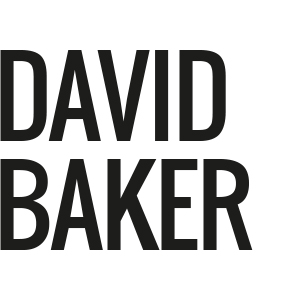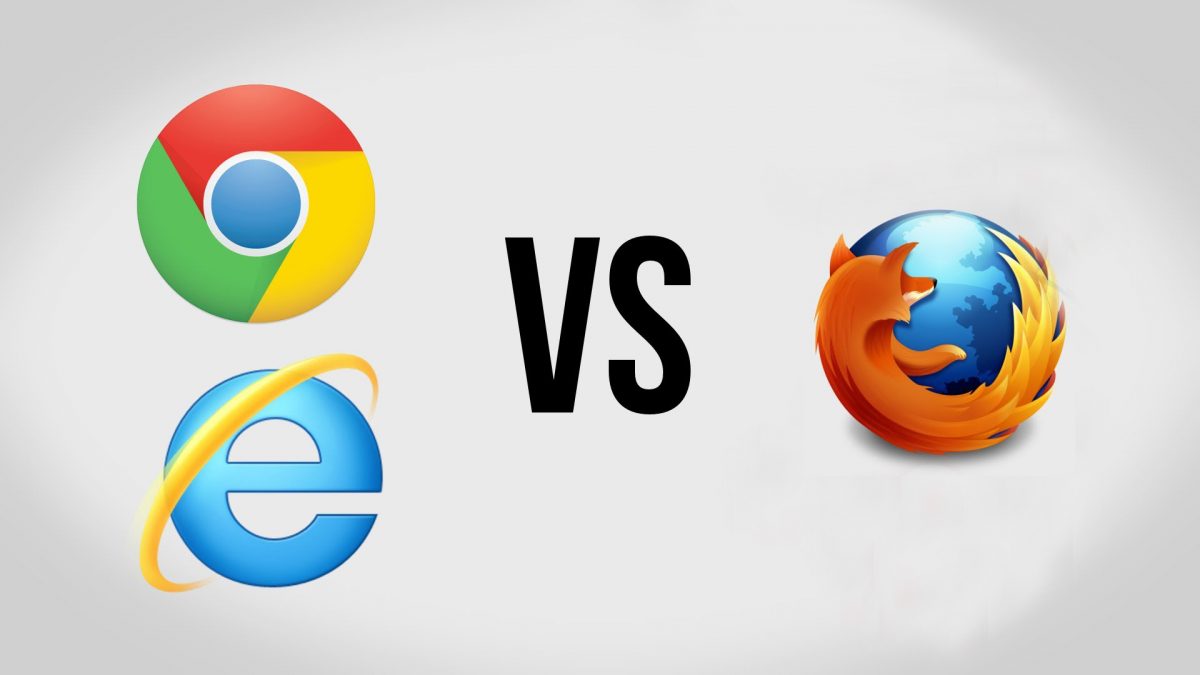Firefox’s open-source evangelists take up arms in a battle of the browsers
Wired, May 2010
Between now and late may, 100 million citizens across Europe will boot up their Windows XP and Vista PCs to confront an unfamiliar screen. The “choice screen”, as it’s officially known, will achieve in an instant what Microsoft succeeded for well over a decade in suppressing: it will help them easily disable Internet Explorer as their default web browser.
Under the terms of its anti-trust settlement with the European Commission, Microsoft will no longer be able to restrict choice to Windows users across the EU, as well as Iceland, Lichtenstein and Norway. Instead, it must help them make a choice: yes, they might retain Internet Explorer as their gateway to the web — but they will also be offered the options of Safari, Chrome, Firefox, Opera, AOL, Maxthon, K-Meleon, Flock, Avant Browser, Sleipnir and Slim Browser.
The screen — as well as a web page at browserchoice.eu hosted by Microsoft — is designed to display, in random order, the icons of the five leading browsers by market share: Internet Explorer, Firefox, Safari, Opera and Google’s Chrome. The logos appear alongside some brief text about each; scroll across and you will see less prominent mentions of the next seven browsers ranked by popularity. Click one or more of the buttons marked “Install” and you will have participated in an exercise in democratic accountability as potentially transformative to the web economy as any general-election ballot.
That’s because the “browser ballot”, as it’s being called, could determine not only who controls our access to the world wide web in the future — but also the shape of the web itself. As Danny Sullivan, editor- in-chief of Search Engine Land and a long-time observer of the web, sees it, “We’re coming to a fork in the road where we’re being asked to choose between a web that is largely open and standards-based and one that is essentially run by companies.”
For years browsers have been the Cinderellas of the computing world, largely unnoticed conduits to the web. Most users stick with the one that comes with their computer (Explorer with Windows; Safari on the Mac); plenty are unaware there are even alternatives.
But since 2003, one browser has emerged from nowhere to challenge the dominance of the corporate giants. Built and updated not by a multinational company but by an alliance of 250 staff and about 10,000 volunteers, and backed by a charitable foundation, the browser is free to download and its source code is open for anyone to inspect and modify — all of which has made it the world’s second most popular browser, used by some 330 million people. And it has achieved that almost entirely through word of mouth.
The Mozilla Foundation’s Firefox, an elegant, feature-laden, customisable and, crucially, non-corporate browser that runs on Windows, OS X and Linux, has a global market share of 24 percent, according to web analytics company NetApplications. That puts it behind Explorer at 62 percent, but ahead of both Safari and Chrome, each of which hovers around five percent. Across Europe, Firefox’s penetration is even higher, at 32 percent, and in Slovenia, Macedonia, Slovakia, Poland, Hungary, Latvia, Bosnia Herzegovina, Ghana, Indonesia and the Philippines it is the number-one choice, with more than 50 percent market penetration.
In the past year, Firefox’s popularity has risen even further. In July 2008, Mozilla earned a place in the Guinness World Records for the most downloads in 24 hours (8,002,530 of Firefox 3.0); in the two weeks following the launch of Firefox 3.6 in January this year, the upgrade was downloaded more than 40 million times. And even though its entire approach is the antithesis to that of the VC-backed West Coast corporates, Firefox earns Mozilla real money. In 2008, according to its most recent audited accounts, Mozilla — which, remember, gives away its main product — announced a record income of $78.6 million. This comes mostly from fees paid by Google, Yahoo, Amazon and eBay to feature in the search box on Firefox’s toolbar, and a share of revenue generated by users clicking Google ads via Firefox-initiated searching.
All this would have been almost unimaginable by the small team of developers who began the Firefox project nearly 12 years ago as an attempt to rescue something from the ashes of Netscape Navigator, a browser that went from web domination to near death in just a few years.
Navigator was developed by a 22-year-old software developer called Marc Andreesen in 1994. With it, Andreesen’s company, Netscape, had stumbled across a product perfectly designed to ride the world wide web’s new mass popularity, giving many users their first taste of hyperlinks, web pages and the almost unimaginable scale of the information starting to be available online.
Navigator was distributed free for personal use, but sold to businesses via download and retail outlets. In addition Netscape got healthy revenues from its web-server software NetSite. By 1995, its income was doubling every quarter. On August 9 1995, the day the company was floated on the stockmarket — to many, the official start of the first dotcom boom — its share price rose from $28 (£19) to $75 (£50), valuing the company at about $2 billion (£1.3bn). By December 1995, shares had reached $174 (£115).
Yet as fast as it had risen, Netscape fell. Within six years its market share had dropped from more than 85 per cent to less than ten — and that residue was only due to users not bothering to upgrade. The reason? A simple change of business strategy taken by one Bill Gates, 1,300km north of Netscape’s SiliconValley campus, at Microsoft HQ in Seattle.
At the start of 1995, Microsoft appeared to have little interest in the internet with, reportedly, only four people working fulltime on developing a browser. Its ambitions were focused squarely on conquering the desktop through Windows and associated programs such as Word. But by May, Gates was telling executives that the web was where the company’s future lay. That December, four months after the Netscape flotation, the company released version 1.0 of Internet Explorer, a browser that, crucially, came free with Windows 95.
Explorer was a disaster for Netscape. Microsoft put huge resources behind its development, launching four full new versions in as many years, bundling Explorer with every new copy of Windows and investing $150 million (£100m) in Apple — effectively saving the company — in return for it making Explorer the default browser on the Mac operating system.
By January 1998, Netscape was finding it increasingly hard to compete and in a last-ditch attempted fight-back it published the Navigator source code online in the hope that the emerging open-source community would take the program — along with some associated products for handling email and IRC chat — and build something new. The company retained the rights to make commercial use of any code developed by outsiders.
The project was managed by a loose group of mostly former Netscape employees, brought together as the Mozilla organisation, named after Netscape’s dinosaur mascot. It initially had some breakthroughs in developing what was to become the Mozilla Application Suite, but in 2003 the group decided to start again and build a new browser from scratch. It would take another three years to see a public release, but Firefox had been born.
It’s a Friday night in one of the tiny mediaeval alleys off Brussels’ Grand Place, and the three floors of the Delerium bar are packed with revellers knocking back beers and shooting the breeze. The music is loud and the atmosphere somewhere between a festival and an indie music club. Yet the topics of conversation are more about GNU and bug-fixing than The White Stripes. The T-shirts feature obscure puns from the world of programming and many of the friends catching up tonight have only ever met before online.
This is Fosdem (Free and Open Source Sofware Developer’s European Meeting), Europe’s biggest and grungiest open-source software conference. Anyone can come and there’s no registration, no name badges and no branded merchandise for the 5,000 delegates — and no one is really in charge. Instead, if you have something to contribute in the fight to preserve what the open-source community sees as the web’s essential freedom, you’re welcome.
There’s a sense of celebration among the crowd — and not just over Mozilla’s record breaking year. The increased popularity of web applications means that smaller, non-corporate players now have a real chance of taking on the big software companies at their own game. Predominantly young, male, articulate and impassioned, the Fosdem delegates are talking excitedly about “changing the world”, “making connections” and “keeping the mission moving on”. It could be an evangelical convention — although no one is wearing a tie.
The browser ballot is causing considerable excitement, with Mozilla seeing it as a long-awaited opportunity to introduce ordinary computer users to the idea that they have a choice about the sort of internet they interact with. Yet two recent developments are casting an uneasy shadow:
Apple’s success with its closed approach to the iPhone and iPad — the latter announced a week earlier — and Google’s launch of Chrome, seen as a real competitor to Firefox that, some here are muttering, could kill the Mozilla dream. Apple tends to get short shrift at events like these. “You know why I am here?” says one delegate, waving an iPhone. “This! This is a machine to deliver money to the iTunes Store. The fact that I can buy and own something but not alter it or write software for it is just beyond the pale.”
Google tends to draw more nuanced responses. “Google is tricky,” says Matjaž Horvat, a developer based in Ljubljana, Slovenia, who helped translate Firefox into Slovenian in his spare time. “Sure, Chrome is open-source, which is good PR for the company, though I don’t personally think it is a very good browser. But then it takes you through to products such as Google Docs that are not open-source. So you have to ask, with Chrome, who really controls the web?”
This anxiety about Chrome pervades discussions at Fosdem. Google is reported to be spending $100 million advertising its browser, its first significant consumer ad campaign (Google would not comment on the budget). It has nearly 20,000 staff rather than 10,000 volunteers and its skilful aggregation of online users’ data makes it a formidable competitor.
“Google has a huge advantage over everyone else,” says Mark Surman, the Mozilla Foundation’s executive director, “because it is carrying out a real-time census of humanity. And there is a risk of it gaining a monopoly of insight that raises the low barriers to entry that the internet has created.”
Until mid-2008, Google was Mozilla’s mentor and champion, funding it through its support of Firefox. The two companies even had neighbouring offices in Mountain View, California, and Mozilla staff were able to use the Googleplex canteen. Google’s funding of the foundation is guaranteed at least to the end of August 2011, and Mozilla has almost $100 million in the bank and plenty of search engines interested in that spot on the Firefox toolbar. But with its aggressive promotion of Chrome, Google has positioned itself right in the middle of Mozilla’s territory.
“I expect Chrome to gain market share, of course,” says Mitchell Baker, chair of the Mozilla Foundation and a former lawyer who has been part of the Mozilla project from the start after joining from Netscape’s legal team. “[Google has] lots of money, lots of smart people, some very popular web applications, loads of determination and loads of data. With all of that behind them they damn right ought to put something useful out there. And it’s going to make us up our game, too.”
Baker stands out at events like Fosdem. Bubbly, engaging, hugely intelligent and incisive, and sporting what at best could be called an idiosyncratic hairstyle, she is also, at 57, decades older than most of the delegates. Having grown up in Oakland in the 70s, she read Asian Studies and then law at Berkeley, including spending a year in Beijing, where she developed conversational Mandarin, which she still keeps up. She was one of the first people to be recruited to Netscape’s legal team in 1994, and helped design the licence under which Netscape released the Navigator code. In 2003, when AOL, which had bought Netscape, closed down the latter’s browser division, she became president and later chairman of the Mozilla Foundation.
Two years later she was made CEO of the Mozilla Corporation, a wholly owned subsidiary of the foundation, which co-ordinates the development of Mozilla’s internet products. She stood down from that role in 2008, to concentrate on running the Mozilla Foundation itself, which is now primarily concerned with Mozilla’s policies and advocacy work. In her spare time, she trains as a trapeze artist.
Baker is a long-time advocate of open-source principles and is evangelical about her beliefs. At an early Fosdem session, she echoed open-source activist Richard Stallman and urged a packed seminar room to beware of a future for the internet that is “free as in beer but not free as in speech”.
“Even if everyone has free and open-source software, our project hasn’t finished,” she said, striding up and down the stage and clicking through OpenOffice presentation slides. “We need to concern ourselves with who is collecting information about us and what can we do about that. Can I access it? Can I control it? If not, we still won’t be truly free.”
If this sounds demagogic, it is because Baker has understood that Mozilla’s strength lies in the number of people who go along with its “project”. If you add to the 10,000 or so volunteers who actively write code for Firefox the people who test early versions before they are given a public release, you end up with a group of perhaps more than a million.
These are impassioned evangelists who believe that the best future for the internet does not involve proprietary software, but instead uses programs and tools that can be pulled apart and reassembled by anyone who understands coding. They believe this enough to give their time and energy for free in order to advance the cause. Baker would like more of them. “If I am going to make a choice about changing my online life,” she tells the Fosdem crowd, “20, 30, 40 million people are going to have to make the same decision. This year we have to spread our values to consumers.”
Baker has acknowledged that the launch of Chrome was “uncomfortable” for Mozilla. She is quick to point out that Mozilla and Google share a common goal: to unseat the closed, proprietary Internet Explorer from its dominant position. But Mozilla has sometimes been very public in its attacks on Google. In December, after the latter’s Eric Schmidt claimed: “If you have something that you don’t want anyone to know, maybe you shouldn’t be doing it in the first place,” Asa Dotzler, the Mozilla Corporation’scommunity co-ordinator for Firefox marketing projects, posted his response on his official blog.
Dotzler quoted Schmidt with a link to the video where he had made his comments and showed his readers “how you can easily switch Firefox’s search from Google to Bing. (Yes, Bing does have a better privacy policy than Google.)” The result was a lively discussion about both Google and Bing’s privacy policies — with neither search engine coming out particularly well. (Google points out that Schmidt was very specifically referring to the requirements of the US Patriot Act.)
Privacy is a hot issue for Mozilla. It has announced plans to produce a series of icons that could be used on the web to alert users how any data they give up will be used. And grassroots open-sourcers such as Horvat are also unsure about Google’s deep-down commitment to open-source: “When you have someone like Google controlling access to the web via its own browser so it can protect and promote something like Google Docs, you are in danger of creating a lot of monopolies on the web. That will crush innovation. The world is a better place when people can connect with and modify what they use.”
For Google, this misrepresents Chrome. “It’s very strange to suggest that Chrome is controlling people’s browsing or promoting Google Docs,” says Peter Barron, the company’s director of communications for northern and central Europe. “The briefest look at Chrome would show it’s utterly untrue. A major aim of Chrome is to make browsers better at running all kinds of web apps, not just Google products.”
At the Googleplex itself, though, there’s a certain empathy for the open-source activists. “There’s a problem, of course, as we get so much bigger,” says Chris DiBona, Google’s open-source-programs manager. “People don’t necessarily trust us so much straight out of the gate, or even like us. The fact that Chrome is open-source can challenge that point of view, but in the end some people want to see everything online open-source. That’s just a bit disingenuous. With Google Docs, for example, so much of that code is based on Google-specific architecture that to release it as open-source would just take too much engineering time. And anyway, we have released a lot of it, especially the UI [user interface] libraries and elements like that.”
Nor, the company insists, is it now out to take on its old friend Mozilla. “We are not in competition,” insists Brian Rakowski, product development manager and to many the brains behind Chrome. “We are playing in the same space: we’re really excited about what Firefox has achieved in the past ten years. It has singlehandedly changed the market. But there came a point when we had to take on the browser project ourselves.”
Why this happened is up for up for debate, but both DiBona and Rakowski stress difficulties the Firefox team had implementing certain changes to the browser’s JavaScript engine, which, DiBona says, was running too slowly: “We had to make the decision to stop building more and more on top of Firefox and start again with a new core architecture.”
In fact, Chrome’s launch may have started a new symbiosis between Mozilla and Google. Building on the work of Chrome’s developers, Mozilla has already reincorporated Chrome’s better handling of JavaScript back into Firefox.
“The added competition caused by Chrome means that everyone rises,” says Aza Raskin, head of user experience at Mozilla Labs. “Our job is to ensure that people have a choice, which is why the ballot is so important.” And, he adds, rumours that Google and Mozilla have somehow fallen out are untrue. “I have lunch with people from Google regularly and there’s a lot of friendliness.”
In fact, Mozilla may not need to be as worried about Chrome as, say, Microsoft. Later this year Google will launch Chrome OS, a pared down, Linux-based operating system that will run on low-power netbook computers.
Under Chrome OS the only application that runs on the desktop is a browser (Chrome, naturally) — all other computing is done in the cloud. The result is cheaper and simpler hardware, very fast boot-up times (possibly as little as four seconds from switch on to surfing the web), a big jump in battery life and, Google hopes, more people using Gmail and Google Docs. And whereas Chrome OS is not (yet) an alternative to Windows or Apple’s OS X — it will run only on specially designed hardware, for example — by giving near instant internet access, it is only really limited by what web applications are available.
“In effect, you will only have one program running,” says Rakowski, who expects Chrome OS to launch in the second half of this year. “You will get a fast boot-up. Security is better as you won’t be able to install malware. And if there is a system problem, you can just reinstall the whole thing over the web.”
If that sounds a little familiar, it’s because Google will offer a trade-off similar to the one that has made the iPhone such a success: comfort over hackability. It’s a trade-off that worries the likes of Horvat and Baker. And whereas Baker is happy to acknowledge Apple’s achievements, Mozilla, she says, stands for something very different.
“People who follow Apple have a very strong connection with it, an affection if you like, just as people have a connection with Mozilla. But its focus is on a product that is integrated, predetermined and highly controlled and we have different values. Real innovation comes from openness. We need to think about what it means to live online and who controls that experience. It’s a choice and we need to get people to understand that it’s a choice they can make.”
One field where this choice is being hotly debated is video-compression technology. Currently, raw video files are too large to distribute usefully across the internet, so a whole industry of video codecs has emerged to squeeze them as much as possible without a perceptible drop in quality. Many of these are used widely on the internet, but the only time ordinary users become aware of their existence is when their browser is unable to show a particular video.
Now video-compression codecs have found themselves a hot topic in discussions about the next revision of HTML, the web’s mark-up language. The latest version, HTML5, due to be completed in 2012, will reduce web browsers’ dependence in showing video on third-party applications such as Adobe’s Flash.
Flash is currently the de facto video standard on the web — if you have watched a video online, you have almost certainly used it — and some web developers are uncomfortable that a single company should have so much control over one of the internet’s key media. It’s unlikely that Adobe will pull the plug on Flash and stop us watching YouTube, but among open-source activists there is a sense that Flash’s dominance is bad for the “free” internet, especially if you are a video maker as well as a video viewer.
The HTML5 developers are seeking to address those concerns by including in the code a new language for video that doesn’t require the use of Flash or any other third-party add-on. Instead, an HTML5-compatible browser will be able to decode video directly from the web page’s source code. (YouTube is currently trialling an HTML5 feed at youtube.com/html5.) Yet, perhaps rather inevitably, talks have stalled over which video-compression codec HTML5 should champion.
In opposite corners are two technologies: H.264 and Ogg Theora. H.264 is already widely used both on the web and elsewhere. It is stable and effective and, though commercially patented, will be royalty-free to internet users at least until 2015. (Most of the H.264 patent holders’ income comes from licensing the codec to technologies such as Blu-ray and the cable-television industry.) Ogg Theora — named after the Max Headroom character Theora Jones — is open-source, slightly less efficient but effectively patent free.
Apple, among others, is arguing for H.264 on the grounds of stability. Mozilla is supporting Theora because of its openness and the foundation’s Chris Blizzard is warning of “GIF-like surprises”, referring to the moment in 1999 when Unisys decided to start charging for the use of GIF imaging technology, for which it owned the patent. GIFs were by then used widely across the net and Unisys was proposing to charge site owners up to $5,000 for the use of its technology. The result was the demise of GIF and a lot of reformatting of existing images.
“It’s scary to think of a world where you would have to fork up $5,000 just to be able to use images on a website,” Blizzard wrote on his blog in January. “Think about all of the opportunity, the weblogs, the search engines (even Google!) and all the other simple ideas that became major services that would never have been started because of a huge tax being put on [the ability] to use a fundamental web technology. It makes the web as a democratic technology distinctly undemocratic.”
Codecs and GIF patents may seem of little interest to the ordinary internet user, but Mozilla is hoping to persuade the rest of us otherwise.
“Software has a very large influence over what you do and how you think,” says Tristan Nitot, president of Mozilla Europe. “We need to make sure that the software we use is serving us and not serving someone else’s interest. This is the year that we are going to have to persuade consumers to think about the sort of the web they want. Otherwise they may end up with one that is a lot less free and, who knows, by then it may be too late.”






